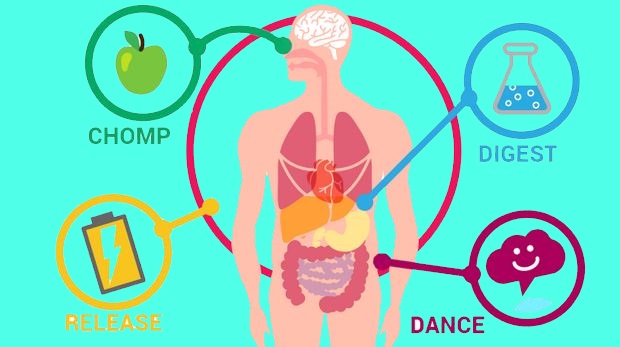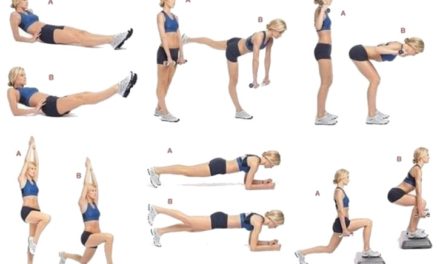Walking only 40 minutes a day can greatly benefit your health. Let’s see the incredible benefits that a walk can have and it is that walking has a reputation for animating our body, but really walking hides many more impressive achievements than we think, and not only helps us burn those extra calories if we are trying to lose weight, which is that it can increase the chances of survival of breast cancer patients.
Here are plenty of reasons to make walking part of our healthy lifestyle and help us stay at the right weight:
- Helps keep diabetes at bay. New studies show that brisk walking contributes to a significant reduction in the risk of developing type 2 diabetes. Insulin resistance is a predictor of this disease, even in people with normal glucose levels. However, a recent British study found that people with a family history of the disease, who were walking quickly, or performing some other moderate activity by routinely becoming vigorous, improves insulin sensitivity.
- Improved sex life. Sex and exercise go hand in hand. In a study of women between 45 and 55 years of age, who exercised brisk walking, they developed not only greater sexual desire, but also greater sexual satisfaction.
- Save on gym expenses. With the economic situation we’ve been in the financial situation lately, people are cutting in on expenses, and that includes visits to these centers. In an American Heart Association poll, a quarter of the 1,000 people surveyed cut their memberships in gyms. But no matter where you live, there’s always a place where you can take a leisurely tour, and doing at least 150 minutes of moderate intensity walking a week can help manage stress and prevent heart disease.
- It can help you decrease certain medications. Health Study Data from Walker Associations nationwide including more than 32,000 women and 8,000 men, the researchers found that those who took the longest of weekly walks do not necessarily accumulate the largest number of kilometers per week, were more likely to use less medication. This should not cause us to reduce short walks and more frequently during the week, but you should consider taking a walk for longer once a week, perhaps on the weekend when you have more free time.
- May help decrease the pain of fibromyalgia. This chronic condition affects more than 4 percent of the population, and often involves a lot of pain, fatigue and mental confusion. A small study found that in women 32 to 70 years of age, who walked 60 minutes, performed light exercises, and extended these routines three times a week for 18 weeks showed significant improvements in gait and mental capacity, and were less tired and depressed.
- Helps beat breast cancer. Women who walk regularly after being diagnosed with breast cancer are 45 percent more likely to survive than those who are inactive, according to a study published in the Journal of Clinical Oncology.
- Walking and walking reduces the risk of stroke. Walking at a rapid pace for as little as 30 minutes, five days a week can significantly reduce your risk of a vascular brain accident, according to researchers at the University of South Carolina. After studying 46,000 men and 15,000 women over 18 years, those with higher levels of physical fitness associated with walking lightly regularly had a 40 percent lower risk of these diseases than those with a lower physical physics.
- It can protect your mind. Italian researchers recruited 749 people who suffer from memory problems in one study and measured their walking and other moderate activities, such as working in the garden. In the four years of follow-up, those who spend more energy walking were found to have a 27 percent lower risk of developing dementia than people who spend less. This could be the result of physical activity function to increase blood flow to the brain.
- Lose weight and keep you. The vast majority, and if not all weight loss programs recommend walking at least 60 minutes a day of this physical activity even doing it with moderate intensity and at a brisk pace. Am I walking enough to lose weight? This daily hour is enough to burn about 300 calories, which would lead us to lose about 4 kg in 6 months.
- Strengthen the heart and Lowers blood pressure. With about 10,000 steps per day, or less, that are an hour a day will be enough to control blood pressure. It also strengthen the heart.
- Strengthen your bones. Our bones tend to weaken as we age, but we can strengthen them by walking on a regular basis. Walking is low impact and prevents loss of bone density, reducing the risk of osteoporosis, fractures and injury. Because bones determine our frame, stronger, healthier bones help improve posture, endurance, and balance. Walking can also prevent arthritis and reduce the pain associated with it.
- Improves our digestion. Poor digestion can lead to many gastrointestinal discomfort, swelling, constipation, diarrhea and even colon cancer. Therefore, it is very important to keep the digestive system in good shape. Even if we have good eating habits and drink ing plenty of water, it is also necessary to walk to improve digestion. Taking a walk or a good walk after meals has good results in the digestive process.
- It improves the immune system, so it protects us from diseases.
- Accelerates the metabolism and helps us prevent obesity.
- Strengthens the bones. Thus we avoid fractures and prevent osteoporosis .
- It improves circulation and strengthens the heart.
- Avoid stress , anxiety or depression due to the production of endorphins.

How to Walk for Weight Loss
In case the goal of walking is weight loss it is important to follow some recommendations such as:
- Pay attention to breathing during the walk, inspiring through the nose and expiring through the mouth at a natural rhythm, this in order for the body to receive the oxygen it needs;
- Walk at least 30 minutes daily or 1 hour 3 times a week, keeping this activity regularly;
- Vary the intensity and speed of the walk;
- Always avoid taking the same route to exit monotony. A good strategy is to do it outdoors as it increases energy levels and allows the body to burn more calories;
- Wear clothing and footwear suitable for physical activity;
- During the walk it is important to make the whole body work this is achieved by moving the arms according to the footsteps, contracting the abdomen and keeping the tips of the feet a little raised;
- It is important during walking to drink water to stay hydrated;
In addition to this, before the walk it is important to perform a warm-up exercise to prepare the muscles for physical activity, thus avoiding injuries and improving performance. The warm-up should be done dynamically and progressively performing exercises similar to those that will be done during training but in less intensity such as taking a few small jumps to warm the legs.
After activity, it is important to stretch the muscles to decrease the risk of cramps and the concentration of lactic acid in the muscles;
What to eat to increase weight loss
To promote weight loss with walking it is important to maintain a diet rich in fibers, fruits, vegetables, whole foods and seeds such as chia and flaxseed. In addition to this, it is recommended to reduce the consumption of fats and sugars such as industrialized products, baubles, soft drinks, fast food, frozen food and cold cuts. See some healthy weight-loss recipes.
During the walk you should drink water to stay hydrated, and after physical activity you should make a small snack with carbohydrates and protein such as eating a skim yogurt with 4 maria-style cookies or drinking a natural fruit juice with bread comprehensive and low-fat cheese.
How often should I walk?
To begin, it is important that you act according to your physical condition . If you have not exercised for a long time, avoid extreme walks. That is, it starts with short periods (between 10 and 15 minutes), with a moderate speed.
- You can start with twice a week and gradually increase.
- The key is not to stop doing it.
- If you walk, at least, 30 minutes a day and take care of your diet, you can lose about 9 kilos in 5 months.
 NL
NL FR
FR DE
DE EN
EN















